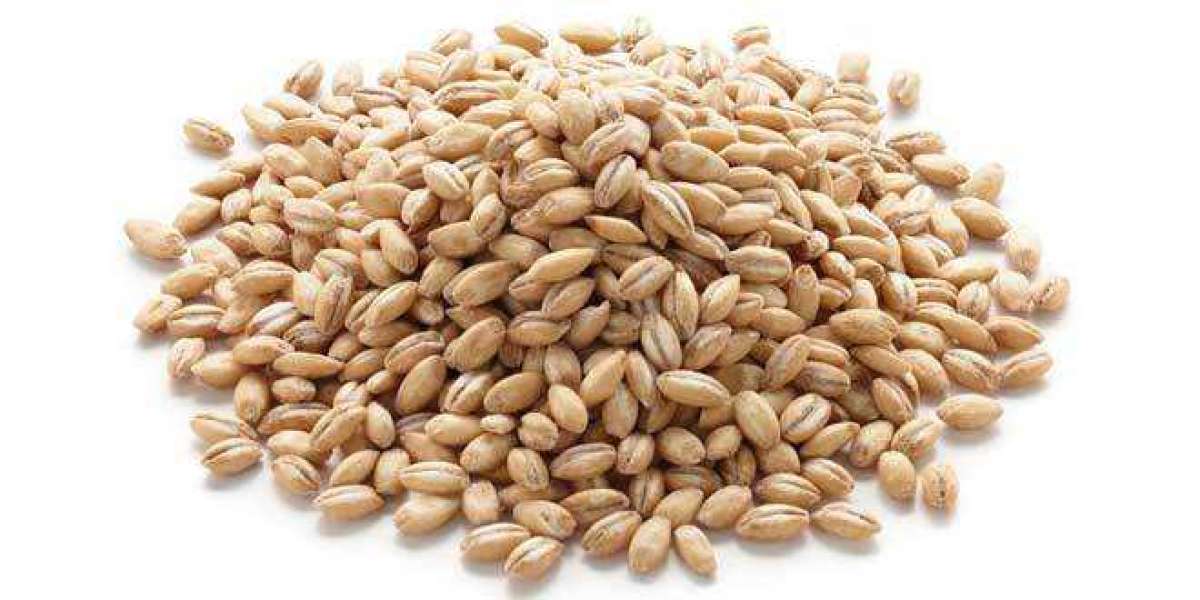Talbina is an ancient dish that has been passed down through generations, rooted in the traditions of the Middle East and other regions of the world. It is made primarily from barley flour, which is cooked with milk, water, or sometimes yogurt to create a creamy, porridge-like consistency. While Talbina is often celebrated for its rich nutrient profile and various health benefits, one question that arises frequently is: Is talbina good for weight gain?
In this post, we will explore the composition of Talbina, its nutritional benefits, and whether or not it can be considered an effective food for those looking to gain weight in a healthy and sustainable way.
What is Talbina?
Talbina is a dish that has its roots in Islamic tradition, with references to it found in the Hadith (the sayings of the Prophet Muhammad, PBUH). The dish is made primarily from barley flour, and it has been described as a comforting food for both physical and emotional nourishment. It is often cooked with milk to give it a creamy texture, though it can be made with water for a lighter version. The result is a soft, porridge-like dish that is both wholesome and nutritious.
Aside from being a traditional food, Talbina is known for its wide range of potential health benefits. It has been praised for its ability to improve digestion, promote mental clarity, reduce stress, and even help with postpartum recovery. Its rich content of soluble fiber, vitamins, and minerals makes it an appealing food for overall wellness.
But how does it fit into the conversation about weight gain?
Talbina’s Nutritional Composition
Before we can determine if Talbina is suitable for weight gain, it’s essential to understand its nutritional profile. The base ingredient, barley, is a highly nutritious whole grain that offers a variety of health benefits. Here are the main nutrients found in Talbina:
1. Carbohydrates:
Barley is rich in carbohydrates, making it a good source of energy. Carbohydrates are essential for fueling the body, especially for those looking to increase their calorie intake for weight gain. The complex carbohydrates in barley are absorbed more slowly by the body, which provides a steady release of energy and helps prevent spikes in blood sugar levels.
2. Fiber:
One of the standout features of Talbina is its high fiber content, particularly soluble fiber. Barley is rich in beta-glucans, a type of soluble fiber that has been shown to have a number of health benefits, including improving digestion, lowering cholesterol, and stabilizing blood sugar levels. Fiber also helps keep you full and satisfied, which can be both a blessing and a challenge when trying to gain weight.
3. Proteins:
While Talbina is not as high in protein as some other foods, barley does provide a modest amount of plant-based protein. The addition of milk (or yogurt) to the dish increases the protein content significantly. Protein is essential for building and repairing tissues and muscles, making it an important macronutrient for those trying to gain lean muscle mass.
4. Healthy Fats:
While barley itself is low in fat, Talbina can be made richer by adding a variety of ingredients. Adding nuts, seeds, or even a bit of ghee or butter can increase the fat content. Healthy fats are important for supporting weight gain in a healthy manner, as they are calorie-dense and can help meet higher energy requirements.
5. Vitamins and Minerals:
Barley is a good source of several key vitamins and minerals, including:
- B Vitamins (such as B1, B3, and B6), which are important for energy metabolism and maintaining healthy skin, hair, and nervous system function.
- Iron, which is crucial for oxygen transport in the blood and preventing anemia.
- Magnesium, which supports muscle and nerve function.
- Zinc, essential for immune function and wound healing.
- Manganese, involved in bone health and antioxidant defenses.
The addition of milk further enriches the nutritional profile, providing calcium, vitamin D, and more B vitamins.
Can Talbina Help with Weight Gain?
Now that we have a basic understanding of Talbina’s nutritional profile, let’s address the core question: Is Talbina good for weight gain?
1. Calorie Density and Sustained Energy:
To gain weight in a healthy manner, it’s essential to consume more calories than your body burns. Talbina, when made with full-fat milk or yogurt and perhaps supplemented with nuts or seeds, can be quite calorie-dense. The complex carbohydrates in barley, combined with the fats and proteins in the milk, make it a great option for providing sustained energy.
For individuals who have difficulty consuming large portions of food or who experience low appetite, Talbina can be an excellent way to get in additional calories without feeling overly full. The creamy texture of Talbina makes it easy to eat and digest, which is important when increasing your calorie intake.
2. Supports Lean Muscle Gain:
Weight gain is not just about accumulating fat—it’s also important to gain lean muscle mass. Talbina contains a decent amount of protein, especially if made with milk or yogurt. Protein plays a vital role in muscle repair and growth, making Talbina a good option for those who are trying to gain muscle through strength training or other forms of exercise. Adding protein-rich toppings like nuts, seeds, or a scoop of protein powder can further increase the muscle-building potential of Talbina.
3. Satiety and Appetite Regulation:
The high fiber content of Talbina can help with satiety, which is a double-edged sword for weight gain. While fiber can help prevent overeating and keep you feeling full for longer, it could also make it challenging to consume enough calories if you’re trying to gain weight. The key is moderation—adding more calorie-dense ingredients like nuts, honey, and healthy fats can balance out the fiber's appetite-suppressing effect.
4. Digestive Health:
A healthy digestive system is key to efficient nutrient absorption, and Talbina may play a role in improving digestion. The fiber content in Talbina promotes gut health, regular bowel movements, and the absorption of essential nutrients. This is particularly helpful when you’re consuming larger meals or calorie-dense foods in an attempt to gain weight.
Talbina for Different Weight Gain Goals
Talbina can be tailored to different weight gain goals, depending on the individual’s needs. For example:
For Healthy Weight Gain: If you’re looking to gain weight slowly and steadily, Talbina is an excellent option, as it’s rich in fiber, protein, and complex carbohydrates. You can add healthy fats such as olive oil, nuts, and seeds to increase its calorie density.
For Muscle Mass Gain: If your goal is to gain lean muscle mass, Talbina’s protein content (especially when made with milk or yogurt) can be beneficial. Pairing it with strength training and adding extra protein through toppings or supplements can enhance muscle growth.
For Postpartum or Recovery: Talbina is often recommended in postpartum recovery due to its nutrient-dense properties. It’s easy on the stomach and can provide a much-needed energy boost without being too heavy. The comfort and warmth of the dish also have emotional benefits, promoting mental wellness during the recovery process.
How to Make Talbina for Weight Gain
To maximize the weight-gain benefits of Talbina, you can try some of the following modifications:
- Use Full-Fat Milk or Yogurt: Opt for whole milk or Greek yogurt instead of low-fat versions to increase the calorie content.
- Add Nuts and Seeds: Almonds, walnuts, flaxseeds, chia seeds, or pumpkin seeds can provide additional healthy fats, protein, and fiber.
- Sweeten Naturally: Adding honey, dates, or maple syrup can boost the calorie count while adding natural sweetness and additional micronutrients.
- Top with Nut Butters: Almond butter, peanut butter, or tahini can add healthy fats and calories to the dish.
Conclusion
Is Talbina good for weight gain? The answer is yes, but it depends on how you prepare it. Talbina is a nutritious, calorie-dense dish that can play an important role in a weight gain plan, especially when paired with protein-rich milk and fat-dense additions. Its high fiber content aids in digestion and supports overall health, but it’s essential to balance the dish with calorie-dense ingredients to ensure that you are consuming enough to promote healthy weight gain.
Whether you’re trying to gain muscle, recover from illness or childbirth, or simply add a nutritious meal to your diet, Talbina can be an excellent and comforting food choice to support your weight gain journey.








